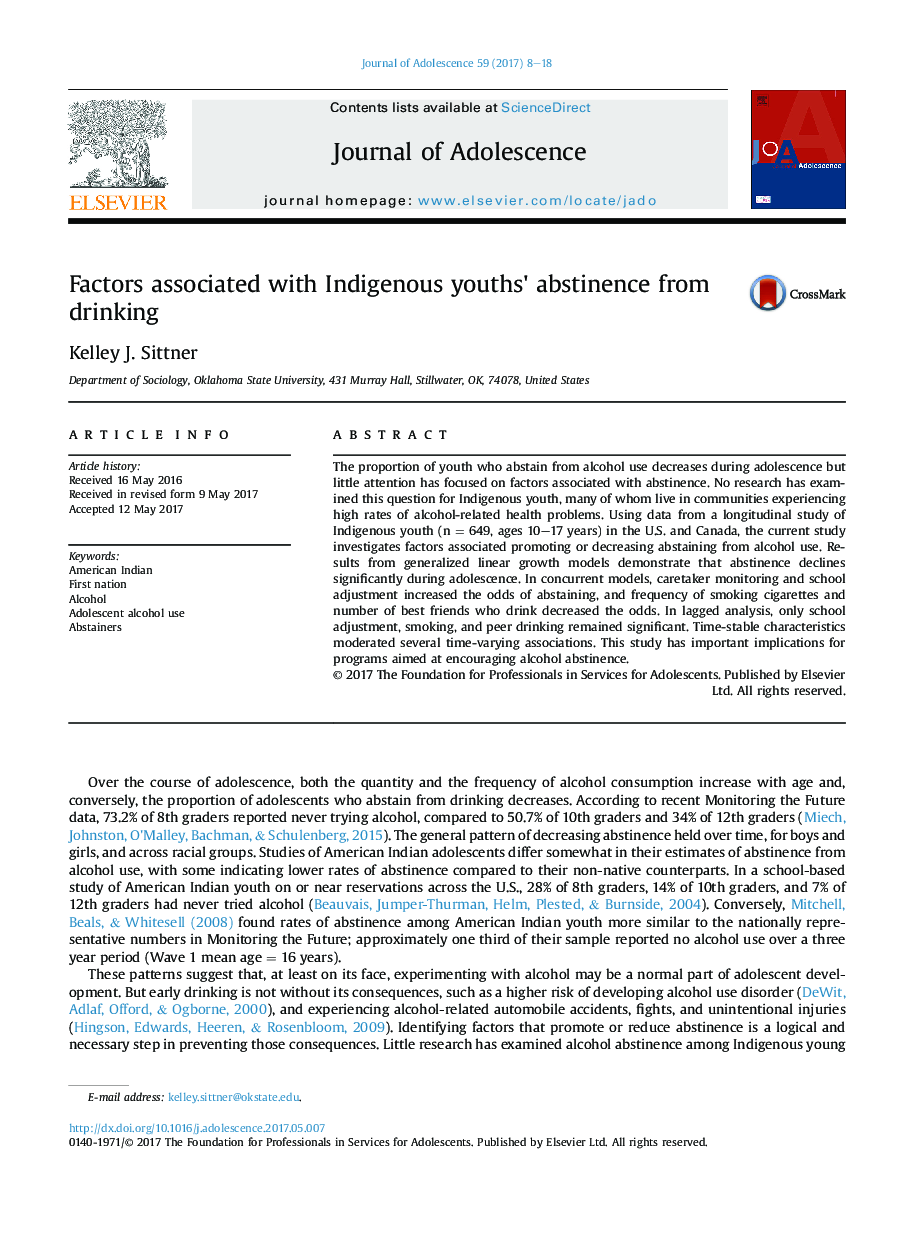| Article ID | Journal | Published Year | Pages | File Type |
|---|---|---|---|---|
| 5033822 | Journal of Adolescence | 2017 | 11 Pages |
Abstract
The proportion of youth who abstain from alcohol use decreases during adolescence but little attention has focused on factors associated with abstinence. No research has examined this question for Indigenous youth, many of whom live in communities experiencing high rates of alcohol-related health problems. Using data from a longitudinal study of Indigenous youth (n = 649, ages 10-17 years) in the U.S. and Canada, the current study investigates factors associated promoting or decreasing abstaining from alcohol use. Results from generalized linear growth models demonstrate that abstinence declines significantly during adolescence. In concurrent models, caretaker monitoring and school adjustment increased the odds of abstaining, and frequency of smoking cigarettes and number of best friends who drink decreased the odds. In lagged analysis, only school adjustment, smoking, and peer drinking remained significant. Time-stable characteristics moderated several time-varying associations. This study has important implications for programs aimed at encouraging alcohol abstinence.
Related Topics
Health Sciences
Medicine and Dentistry
Public Health and Health Policy
Authors
Kelley J. Sittner,
